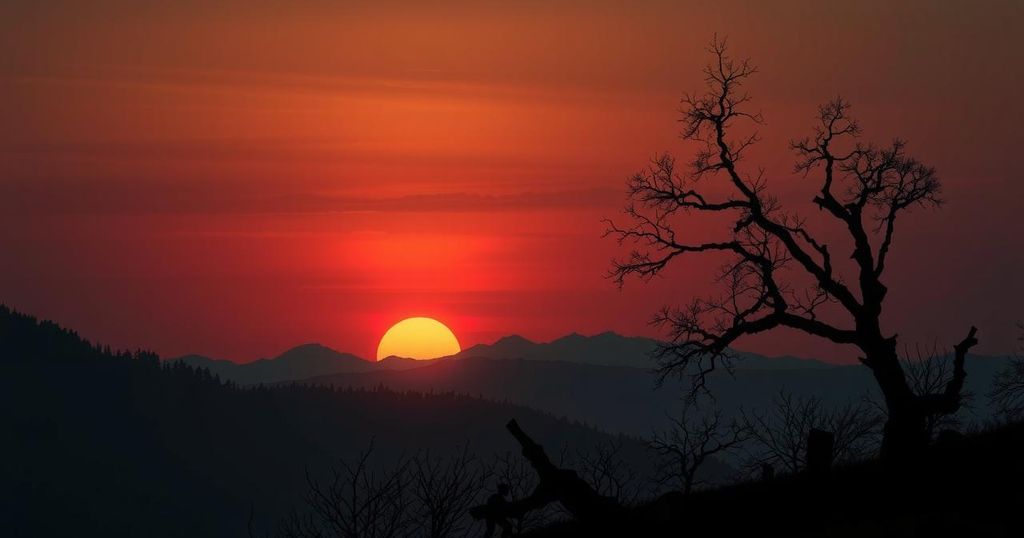Major General Peter Cirimwami Nkuba, the military governor of North Kivu province in the DRC, died from injuries sustained during an M23 rebel offensive. The conflict has caused over 400,000 displacements and intensified concerns about regional stability as M23 aims to seize Goma, the provincial capital. The Congolese government accuses Rwanda of backing the rebels, exacerbating the humanitarian crisis.
The military governor of North Kivu province in the Democratic Republic of Congo, Major General Peter Cirimwami Nkuba, succumbed to gunshot wounds sustained during a frontline offensive by M23 rebels. Reports indicate he was injured while overseeing troop movements approximately 20 kilometers from Goma and died during transport for further medical treatment. His death underscores the escalating violence in the region, prompting numerous civilian displacements.
In recent weeks, fighting in the mineral-rich eastern Congo has intensified, with M23 rebels claiming significant territorial gains, culminating in threats to Goma, the provincial capital. The Congo River Alliance, which includes the M23 group, has announced intentions to advance towards Goma, heightening concerns for its over one million residents as more than 400,000 individuals have fled the ongoing conflict.
Congo, alongside United Nations officials, attributes the insurgency to the involvement of neighboring Rwanda, which purportedly provides military support to the rebels. Tensions remain high as M23 advocates for Tutsi interests against ethnic Hutu militias, claiming governmental violations of a past peace agreement from March 2009. The UN warns that these developments risk igniting a broader regional conflict.
Despite government claims of repelling rebel advances near Sake, local reports indicate continuous fighting. Heavy bombardment has resulted in evacuations from tent camps surrounding Goma, forcing families into the city where humanitarian conditions have deteriorated. The situation remains precarious, with the Congolese government urging the UN Security Council to address the crisis exacerbated by clear evidence of Rwandan involvement.
Previously, M23 briefly took Goma in 2012, leading to international aid sanctions against Rwanda, though the current territorial control of the rebels surpasses that period. The Congolese government stresses that the reaction of the international community is crucial to resolving the ongoing conflict, which threatens to spill beyond the country’s borders, impacting regional stability.
The conflict in the Democratic Republic of Congo, particularly in North Kivu province, is rooted in complex historical tensions, including the aftermath of the Rwandan genocide. The M23 rebel group, primarily composed of Tutsi fighters, emerged from previous political agreements, claiming to protect their community against Hutu militias. Since the beginning of 2023, conflict dynamics have escalated, leading to grave humanitarian crises and civil unrest, with international implications.
The death of Major General Peter Cirimwami Nkuba highlights the severe consequences of the ongoing conflict in North Kivu, with wide-ranging impacts on civilian populations and regional stability. The escalation of violence and mass displacements underscore the need for urgent international intervention to address the humanitarian crisis and to stabilize the region amidst ongoing accusations of foreign involvement. The situation remains critical as rebel forces continue to pose a threat to Goma.
Original Source: www.straitstimes.com






